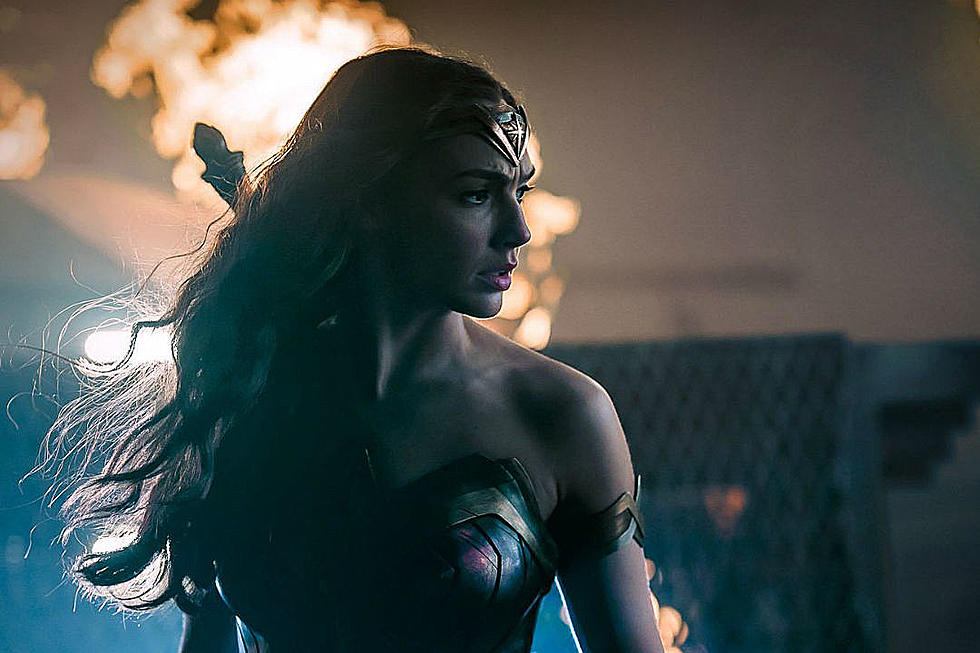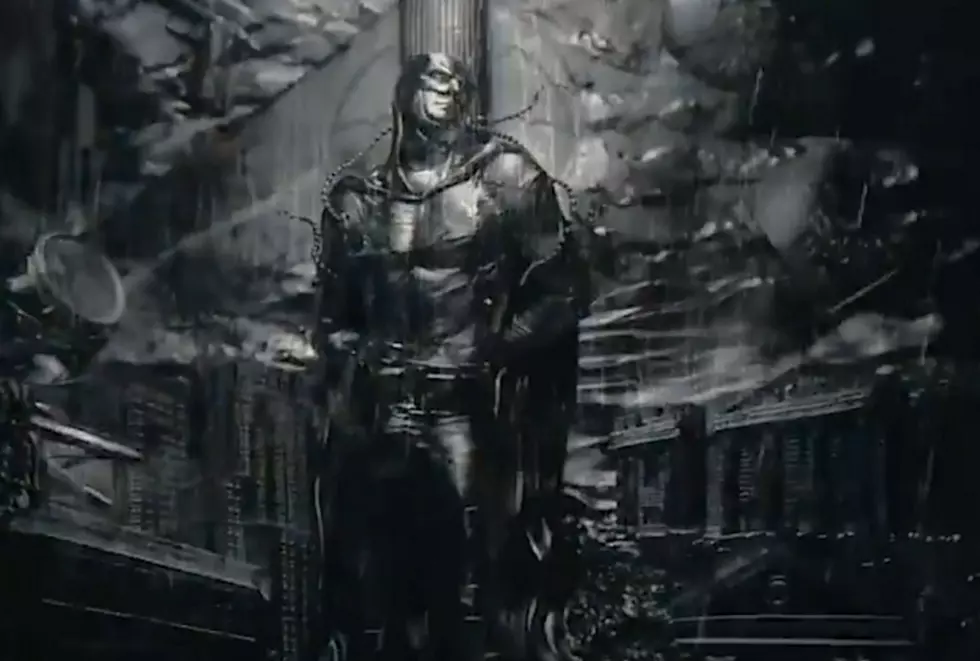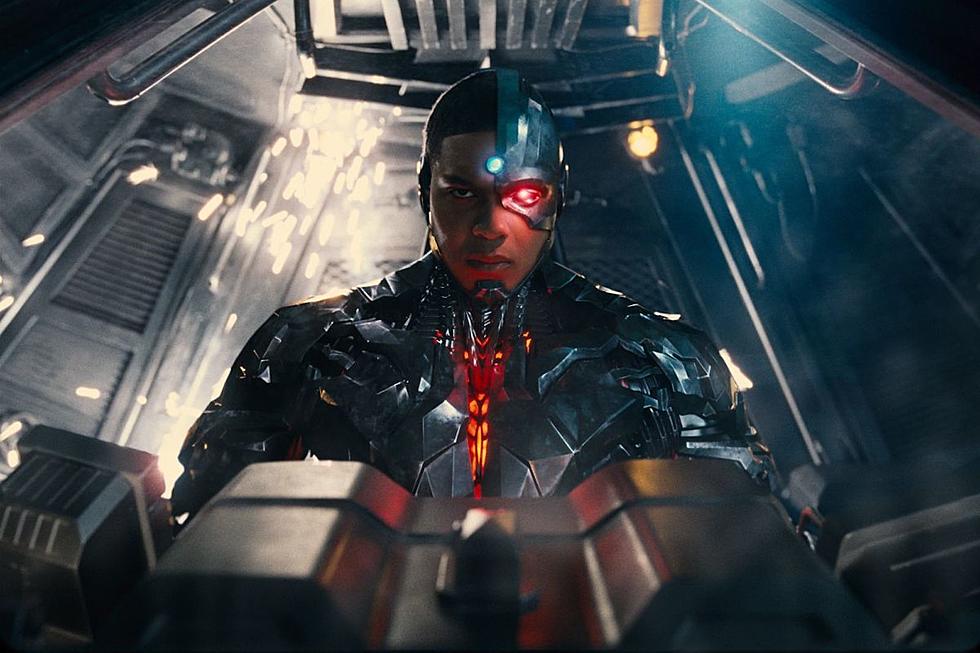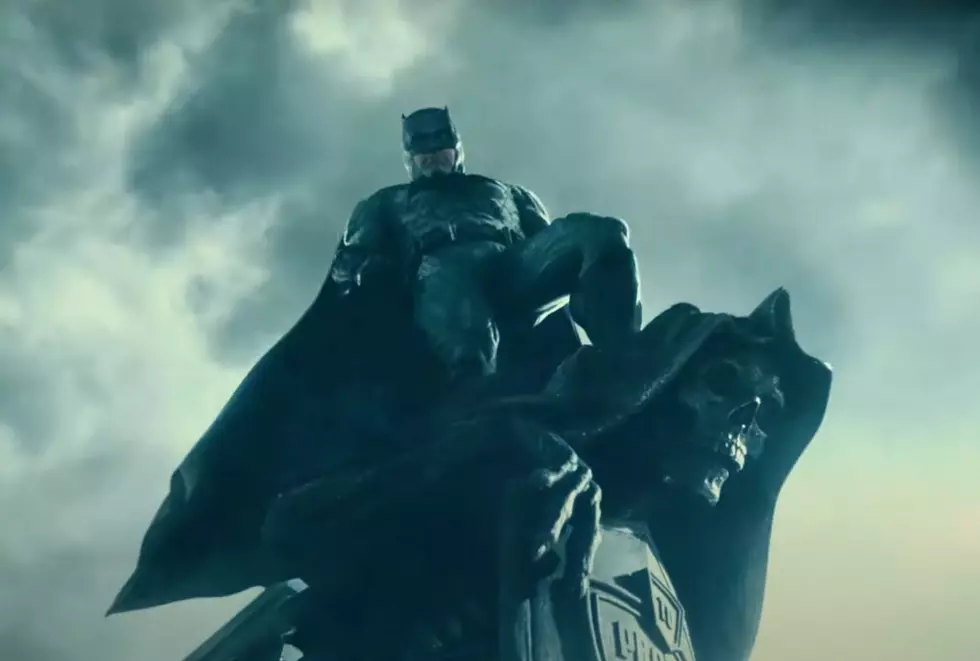
Ask Chris #227: Does ‘Justice League International’ Have A Legacy?
Q: What is the lasting impact of Justice League International? Does it have one? -- @dagsly
A: Does Justice League International have a lasting impact?! Well let me ask you a question, Dags: Does Batman have pointy ears? Does Clark Kent wear glasses? Does Aquaman have pruney fingers and breath that smells like krill? Just so we're all on the same page here, the answer to all of these questions is "yes," especially in the case of JLI having a lasting impact. It's not just that it was a good book, but that it formed a foundation and a blueprint for the way pretty much every team book would work thirty years later.
I mean, I don't want to exaggerate any more than I usually do or anything, but after Lee and Kirby's Fantastic Four and Claremont, Byrne and Cockrum's X-Men, Keith Giffen, JM DeMatteis and Kevin Maguire's Justice League is arguably the most important team book in comics history.
See, here's the thing about JLI, and if you'll excuse me, I'm going to go into full-on cranky old comics reader mode for a bit here: Everyone always thinks of it as the funny Justice League book. That's how it's always referred to, with the emphasis on the bwa-ha-has, the "One punch!" scenes, and Beetle and Booster's wacky schemes, but that's not really accurate. All that stuff is in there, sure. It's a huge part of the book, something that distinguished it from its predecessors, and it's certainly what the emphasis was on when the creative team reunited in later years for books like Formerly Known as the Justice League, and even across the street with that one run of Defenders that nobody read.
No, the other run of Defenders that nobody read. No, the other other run of -- you know what? Let's just move on.
The point is, while JLI was a book with a lot of very funny, very memorable parts, comedy was never really the main focus of the series. Or at least, it wasn't the focus at the expense of anything else. See, the thing that marked JLI more than being a funny book was that it was a balanced one. It had all the superheroic action, drama and melodrama that marked every other great superhero comic of the era, it just also wasn't afraid to be funny while it was at it. And in the mid-80s, when comics were being increasingly defined by darker storylines, when DC had just redefined their universe with a series where Superman was crying in anguish on the cover while holding the dead body of his cousin -- something that set a pretty tiresome precedent that they'd go back to again and again over the next couple decades -- that made JLI stick out even more.
I think it bugs me so much because the characterization of JLI as the "Bwa-Ha-Ha" League and nothing more has always felt so dismissive. To me, it seems like it's a product of the '90s backlash, the same kind of bitter grumbling that caused superhero fans to spend so long burying the '60s Batman show because they thought it was making fun of them. I mean, they were at least partially right on that one -- a friend of mine recently dug up an article about Batman writer Lorenzo Semple Jr. from 1983 where he had some extremely unkind words for people like, uh, me -- but it's also a symptom of the mindset that anything that isn't entirely super-serious is flawed. The conclusion that gets to is that if Justice League International is funny, then it can't be anything else.
That's a huge disservice to the work that was actually done in that book, and one of the most brilliant things about it. The funny parts are so genuinely funny that when the switch flips and that book hits you with the action, it hits like a wrecking ball. There are a lot of great examples of that throughout the run, but the best comes from Justice League America #38 and 39, the issues that Adam Hughes drew.
If you've never read that Despero story, it is more than worth your time to track it down, if only to see how fast it gets rid of the illusions of the JLI era being rooted solely in comedy. It's one of the most thrilling, action-packed superhero battles of all time. It's actually a sequel to a story in the previous iteration of the Justice League, the infamous Detroit Era, which was probably the single best story of that run, and it's brutal. Despero returns to Earth to get revenge, and just tears through the JLA.
Despite a few gags about Hughes's gratuitous cheesecake, there's not really a whole lot of laughs to be had in the whole thing. I mean, Mr. Miracle dies in that comic!
Well. Sort of. See, the Mr. Miracle that gets killed in that comic is actually a robot duplicate, a fact that gets played for laughs, and a lot of the tension and drama in the issue comes from the fact that we know it's not the real deal, but the other characters don't. They think they just witnessed the death of a teammate at the hands of one of their deadliest villains, and their reactions to it feel real.
But that's the whole trick of the series in a nutshell. The groundwork is laid through comedy and character work, so that when the action starts, it hits harder. You're lulled into thinking that this is just going to be a sitcom about bickering teammates and Guy Gardner's mouth writing checks that his glass jaw can't cash, and when it's time to flip it around and blindside you with all the serious stuff that comes from a superhero comic, it subverts your expectations and feels a whole lot more serious than it actually is.
In a lot of ways, it's similar to what was going on at the same time with Suicide Squad, another book that ended up being a whole heck of a lot more influential on modern comics than I think anyone expected. There, it was John Ostrander, Kim Yale and Luke McDonnell (among others) using flashes of comedy to break the tension of a book based on the premise where someone would inevitably die on a mission in every single story arc. It was frequently hilarious, but the humor served to contrast with the violence and helped to humanize the characters.
Juggling those kind of tone shifts is one of the most difficult tricks for a comic to pull off, and the amazing thing about JLI (and Squad, for that matter) is that they made it seem effortless. There's never a moment where the reader gets snapped by the whiplash of the book deciding to be serious, it all works.
And it works because they spent so much time and effort building those characters.
I mentioned above that the book wasn't just about comedy, and it wasn't just a sitcom built around Blue Beetle and Booster Gold's buddy-comedy friendship, and it wasn't just about the characters bickering with each other, but you'd be hard pressed to say that those weren't the elements that laid the foundation for what made that book so effective. When Despero shows up, or when the team has to duke it out with their Soviet counterparts, or when the horrific results of the Bialyan superhero experiments show up, you care because you've seen these characters as real people.
To be entirely fair, this wasn't really a new concept in the world of superhero comics. The Fantastic Four had been bickering at each other to build character since 1961, and the X-Men certainly had their share of in-depth soap operatic characterization, but JLI took a different tack. When you get right down to it, I think it's a matter of stylistic differences. The FF were full of that Lee/Kirby bombast, and they had the familial relationship forming the structure that their superhero team was built around. The X-Men were a little closer to what the JLI would be, but they were also largely a product of Chris Claremont, and while I love the heck out of those comics, if you know anyone who actually talks like a Chris Claremont character, then let me know, because I need to experience a conversation like that at least once in my life, sugah.
Giffen and DeMatteis's scripts were different, if only because they had an ear for dialogue that made them seem slightly more real. Extremely quippy and caught up in bizarre situations, sure, but real in the way that characters in sitcoms and movies (you know, people who aren't superheroes) sound real. They were vain, petty, grumpy, and most of all, they were extremely sarcastic. It gave them a level of relatable authenticity that nobody had ever really had in superhero comics before that.
And as much credit as you can give to Giffen and DeMatteis on that score, it's impossible to overstate how much Kevin Maguire did to contribute to that authenticity. His art is easily some of the most expressive in comics, and while Hughes did an amazing job on his stories, nobody can touch the faces that Maguire drew to sell moments in that book.
And that, I think, set the tone for how superhero teams would work into the 21st century. There was certainly a reaction that swung in the opposite direction immediately after the Giffen/DeMatteis/Maguire era had ended -- lookin' at you here, Extreme Justice -- but over time, their blueprint of superheroes as quippy, sarcastic coworkers became the standard, the product of Lee, Kirby, Claremont and Byrne filtered through the rest of pop culture, and it worked so well that you can see its fingerprints on everything else.
Without Justice League International, I don't think you get Geoff Johns's bickering Justice League or Brian Michael Bendis's chatty Avengers, and I definitely don't think you get Joss Whedon's chatty Avengers or the quippy, big-screen Guardians of the Galaxy. They all follow that mold, balancing out those small, affable, engaging character moments with the big action that works because it feels like the bad guys are going after your friends instead of your heroes.
That's JLI's lasting legacy, and it's something that goes beyond the jokes that it's remembered for and the two or three sequences that always get passed around. Go back and give it a read sometime. It's a whole lot more than just this:
Although let's be real here: That is pretty great.
Ask Chris art by Erica Henderson. If you’ve got a question you’d like to see Chris tackle in a future column, just send it to @theisb on Twitter with the hashtag #AskChris.
More From ComicsAlliance









